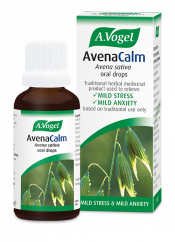Why owning pets can be good for our mood
One of my favourite times of the day is getting home from London to be greeted by my ginger cat, Inti, running down the stairs to meet me.
He chats to me about his day (though I haven’t got a clue what he’s saying, other than ‘feed me please’!) and then wants nothing more (after a bowl of tuna) than to cuddle up on my lap and purr away any stresses of my day. What a gift. I love him to bits!
I have heard it said in some countries that people think we Brits are potty about our pets, but if so it is with good reason. In the absence of lots of sunlight (and all that mood-lifting vitamin D) as in mediterranean countries, there is plenty of research to support just how and why pets are important for relieving stress and helping us to be happy.
Unconditional love – our pets often want to be in our company, demonstrating loyalty and unconditional love. They don’t tell us what to do and they don’t make judgements. Whilst our human interactions can also provide great happiness, they can also be a source of stress at times. Animal relationships, on the whole, tend to be much less complex.
Companionship – according to one study, 97% of owners talk to their pets (I’m one of them!) and treat them like another member of the family. This can be especially important for those who live alone, or for one reason or another have difficulty socialising or getting out and about. It’s not just adults who can benefit from the comfort and friendship provided by our pets – children can too.
Socialising and exercise - walking a dog can improve your wellbeing in more ways than one: meeting people, getting daily exercise and being outdoors in nature. All the better if the walk is taken early in the morning to maximise the chances of raising serotonin (mood elevating brain chemicals) levels by way of the light at this time of day.
Promoting calm and happiness - pets are powerful forms of stress relief, lowering not only blood pressure but also stress hormones like cortisol, which is associated with depression and anxiety, and elevating beneficial ones like oxytocin, which is linked to happiness and relaxation. Some people experience increased output of endorphins and dopamines after spending just five minutes with an animal. http://science.howstuffworks.com/life/pets-happiness1.htm
In terms of amusement and fun, one look at You Tube for ‘funny pets’ ‘cute animals’ etc. will show how much value and pleasure our furry friends bring us. If you are a cat lover you’ll enjoy Simon’s cat. Simon captures the spirit of his cats brilliantly and TV dinner, Cat Man Do and Double Trouble will have you laughing out loud.
While cats and dogs tend to be our first port of pet call, other pets can help us too. Simply watching a fish tank can lower blood pressure and be as effective as meditation.

Unusual and surprise encounters can also be a gift. I walk regularly around a local field every week. At one edge is a farm with a goose whose partner was killed last year by a fox. For some reason he has chosen to befriend me and whenever I am out walking, he comes over to talk and lets me stroke him. A goose! I find it deeply touching.
If you don't have a pet
Owning a pet doesn’t suit everyone. It is an extra responsibility and one that should not be taken lightly. As they give us love and loyalty so too do we owe them our ongoing care and commitment.
The good news is that whilst the bond between pet and owner may provide the greatest stress relief, shorter encounters can also be of significant benefit.
In one study, patients who spent a short amount of time with a dog before an operation experienced a 37 percent reduction in their anxiety levels, perhaps, because the animal’s presence helped distract them from their concerns.
Indeed there is a growing demand for therapy dogs – to sit under tiny hands in therapeutic playgroups, soothe those experiencing grief and visit hospitals to bring happiness to patients and families. Now, the practice is gaining popularity on college campuses, especially during exams, to help students with stress relief.
If you can’t have a pet or it’s too much responsibility, there are other ways to seek out these animal encounters:
- Dog walking (for friends, elderly people etc.).
- Cat sitting – for friends or family if they go away – get a mini holiday too.
- Looking after school pets (hamsters etc.) during holidays.
- Volunteering for local wildlife sanctuaries or attending their fundraising days. Search the Internet for ‘volunteering with animals’.
I will attempt to sign off now, leaving you with warm fuzzy feelings for your furry friends. May be difficult though as I am in a very awkward position with my iPad at eye level due to Inti sleeping where my laptop should be! The cat always wins!
And if you love your pet and they are suddenly in need of any extra emotional support after giving so much to us, don’t forget that Flower Essences can work very well to alleviate their stress.








